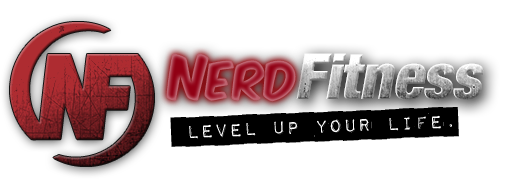Search the Community
Showing results for tags 'tdee'.
-
Hello all. I am using https://tdeecalculator.net/ to calculate how much I should be eating but I am unsure of what exercise level to put. I have an office job but make sure to walk at least 9k steps a day and I do bodyweight fitness 3-4 times a week. I don't know whether this makes me "sedentary" or "lightly active". I am also conflicted because I have PCOS and I don't know how exactly that affects how much I should eat or what I should eat. I was on keto a couple of years back because I had heard it was good for people with PCOS and I got pretty thin (to be fair I was eating 1200-1400 calories a day too) but ended up stress eating it all back. My eating disorder therapist tells me that carbohydrates are important but I have trouble believeing it. They also say that I should be eating at least my basal metabolic rate (1657 calories) in calories to lose weight. I feel like I'm getting conflicting information from everywhere and no one really knows what they're doing. As someone who highly values structured numbers and orders, this is highly frustrating to me. Any advice would be appreciated.
-
When I wasn't exercising, the TDEE I got from these calculators on the sedentary setting seemed to be more or less on the nose. When I ate 1400 calories, I didn't gain or lose weight. Now that I've started working out regularly I want to know how many calories I need now, since obviously 1400 will not be enough anymore. I'm working out with moderate intensity 3 days a week, and these calculators are all giving me 1600 calories. I'm a very small person, I doubt I'm burning 200 calories in a single workout, and I think it's ridiculous that I'd burn any extra calories on the 4 days a week I'm not working out. Is there some sort of residual calorie burn going on that I don't know about, or are these calculators just plain inaccurate for active people? I know I need to eat more to gain muscle, I'd just really like to have an accurate baseline so I know if I'm actually in a deficit or surplus, and how big it is. Thank you!
- 11 replies
-
- calculator
- calories
-
(and 1 more)
Tagged with:
-
Here is the dropbox link to the excel file: https://www.dropbox.com/s/rrwdfj7b2e2v02d/EggsareSides%20%28for%20bacon%29%20-%20Blank.xlsx?dl=0 Hey all, So... I don't know about you, but I am always confused by how much I should eat... I know there are schools of thought that say if you eat the right types of foods, just eating till you are full will probably be fine. I like more concrete numbers than that. http://www.muscleforlife.com/healthy-meal-planning-tips/ Using this article as a guide I came up with an excel sheet so that a person can quickly and easily figure out your BMR (Basal Metabolic Rate), Total Daily Energy Expenditure (TDEE), Daily Caloric Requirement/Grams of macronutrients based on whether you are bulking, cutting, or maintaining. To use this, you need to know your weight, body fat %, and how many hours a week you spend working out. It uses the Katch-Mcardle BMR calculator. It provides recommendations for %'s of your macros, but you can completely disregard them and put whatever you want in there if you have your own system for calorie distribution. A breakdown of the features: 1) I wanted it to be useful to as many people as possible, so it allows adjustment for %'s of each macro. 2) I also included a protein calculator for those who want to get in 1.3, 1.8, 2.2 (whatever) grams per pound of protein. You input how many grams/lb. you want, and it spits out what % of your total intake that is (then the math is simple to input whatever % of dietary fat and carbs you want to get to 100% of daily calories). 3) The recommended protein and carb %'s are not static for bulking and maintenance. They take into account recommendations of 1G protein/lb., 20% from dietary fat, and then automatically calculates and plugs in the appropriate percentage/grams of carbs. Again, this only affects the recommendation. 4) I protected the worksheet so that those unfamiliar with excel do not accidentally destroy all of the formulas. The worksheet is totally functional while protected. There was no password set, so removing the protection is as easy as going to the review tab and clicking on "unprotect worksheet". I did this so if someone was curious as to how I did the formulas (and if they wanted to edit them a bit themselves) it would be simple to do. 5) I fell off the wagon.. I am back on the wagon now... I did a little more tweaking to the sheet (30 Aug 2015). Some tips I have come across: Avoiding carbs before bedtime may increase secretion of growth hormone while sleeping.Taking a slow digesting protein such as egg or casein just prior to going to bed can increase muscle repair while sleeping.If you train fasted, taking 10G BCAA 10 minutes prior can help prevent muscles from being used as fuel. NOTE: This can also hurt performance, which would effect your ability to make improvements.If you aren’t going to train fasted, try eating 30 grams of high GI (glycemic index) carbs and 30 grams of fast digesting (like whey) protein 30 minutes before training. After training try getting 80G high GI carbs and 30-40 grams of fast digesting protein.Intermittent Fasting (basically skip a meal and cram all of your daily calories into a short feeding window) may help accelerate fat loss.You will see in the calculator that there is a 20% fat intake recommendation for when cutting. I’ve read lots of stuff that says going a bit higher with fat (at least 30%) can help keep your metabolism up. Personally, I like a bit of a higher fat content, because it makes my life easier when counting calories. I also am not a big eater, and you can eat more fat calories with less poundage of food. Keeping the metabolism up won’t be as big of a deal when bulking or maintaining since you will be giving your body all of the calories it wants.People always talk about bodyfat percentage. First off, it's important to remember that this is an *ESTIMATED* body fat percentage. Also, I would rather work with raw numbers. Your amount of body fat can not change one ounch, but your body fat % will change due to hydration levels, how much food/waste is in your GI system, muscle mass changes, etc etc etc . I like to take the bodyfat% and convert it to pounds of body fat (again, remember, estimated). I have this built into the excel sheet. The way to do this without the sheet is simple. Take your weight, and multiply it by your body fat % (remember when multiplying percentages the percentage becomes a decimal. 10% would be .10). If you weigh 100 pounds and your body fat % is 10, that means you have 10 lbs of body fat. If I am trying to get rid of fat, I would rather look at lbs of fat versus percentage of fat to see if I am making progress. Again... I can't stress this enough.... Estimated body fat. It can be very difficult to get accurate fat readings, so assume that there will always be a high margin of error. Maybe you actually gained fat even though the numbers show a little loss, or perhaps you lost fat even though the numbers show a bit of a gain. Use averages and looks for trends over time. I hope you guys like it and find it useful!
-
To be perfectly honest, I had never heard of TDEE before this morning. After doing some research, I found out that it stands for "Total Daily Energy Expenditure", and is a gage of how many calories your body needs to function based on numerous factors (activity level, age, weight, etc). Subtracting a percentage of that (10-20%) will result in weight loss! Magic! Hooray! Ok, obviously it's not quite that simple, but it seemed like TDEE would be a good gauge for a target calorie consumption. So I ran my numbers and ended up with.... 2,610??? Through some trial and error, I've found that 1800-2000 calories results in good losses for me, though to be fair, that's largely in comparison with the 1500 area. I've never tried keeping track of calories and consuming 2600 in a day... A few factors: I am about 100 pounds overweight, tall, and young. So yes, obviously, I will need more calories than a 120 lb girl who is 5'4". Cuz, you know... Science. But 2600? That would be a 20% deficit from my "maintaining weight" target. Does that seem right? If so, am I way under-eating?
- 9 replies
-
- tdee
- weightloss
-
(and 8 more)
Tagged with:
-
Hi, I’m new here. I have been lurking about for a few months and finally decided to join because I need some advice on diet and exercise but first, a little about me. I’m a 28 year old male, happily married with a two year old daughter. I’m not quite sure that I would pass the nerd entrance exam as I am not a gamer(unless you count spending hours playing Command and Conquer back in elementary school) and I only really started reading heavily about 7 years ago. However, I do love fantasy novels (halfway through A Memory Of Light, right now) and I am a big Doctor Who fan. Also, my wife would definitely pass the nerd exam so I maybe I can slid through with a nerd green card. I am 5’10†and currently around 187 lbs. I have been dabbling in paleo/primal eating for around a year but finally committed in September of 2012 (biggest loser type contest at my job). Since September, I have lost about 55lbs (starting weight 242 lbs) and around 7 inches around my stomach. From September through November, the only exercise I performed was walking during my lunch break. In January, my wife decided she would like to lose a few pounds so we both joined My Fitness Pal to track our exercise and food intake. Around the same time, I started the Simplefit body weight program and recently completed L5D3. Since starting to track my calorie intake, I have averaged around 1600 calories and 130 g of protein per day. I just started Starting Strength, in lieu of Simplefit, this week. Everything I have read about BMR and TDEE says I should be eating more but I’m currently just eating when I’m hungry. Sample menu: Breakfast: 4 hard boiled eggs ½ avocado 2 cups spinach Lunch: 2 cups romaine Various veg (cucumbers, radishes, pepper, etc.) 6 oz chicken or can of tuna 2 tbsp olive oil 1 tbsp balsamic vinegar Snack: Protein shake Apple or orange or banana Dinner: Lots of variation but generally just meat and veg My goals: Get to a respectable mid-teen body fat percentage(15%) Increase my Lifts(200 bench, 300 deadlift) Run 5k in under 20 min(would like to beat a friend in a race in September ’13) So what do you guys think? Should I eat more? Should I keep doing what I’m doing?
- 3 replies
-
- starting strength
- bmr
-
(and 3 more)
Tagged with:

.thumb.jpg.6d1cb8d2fde42929e3cce862471a7d32.jpg)




